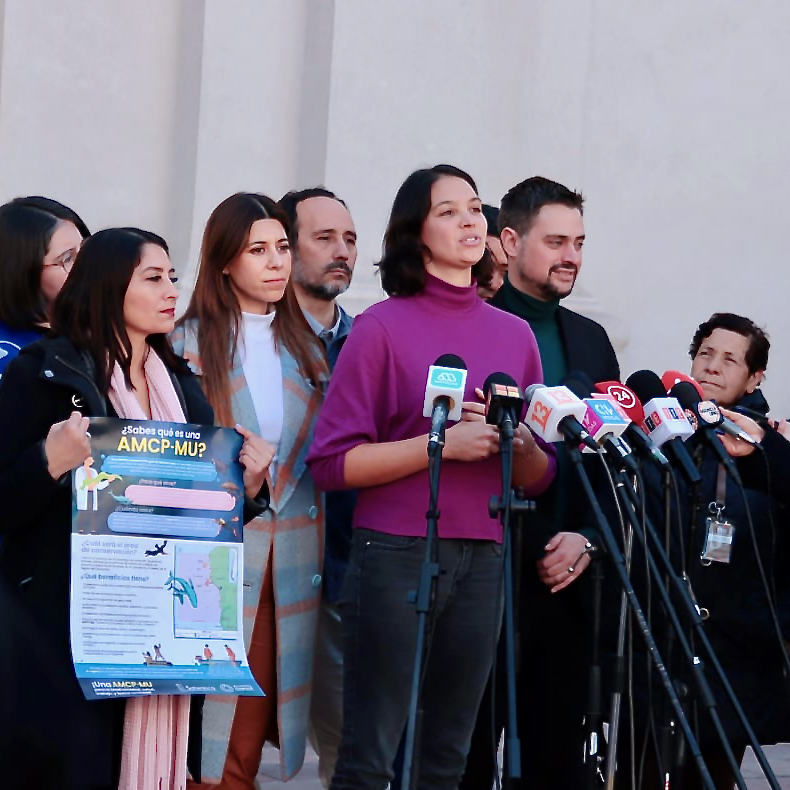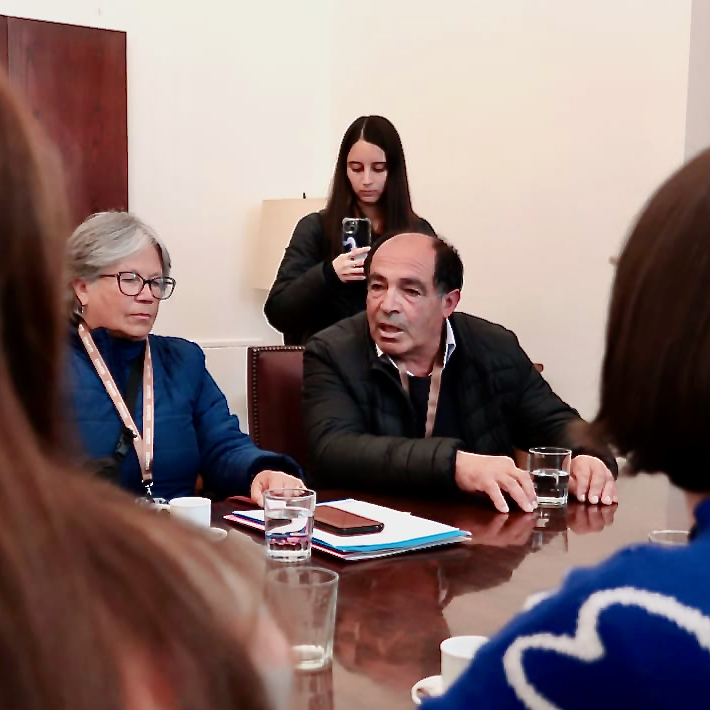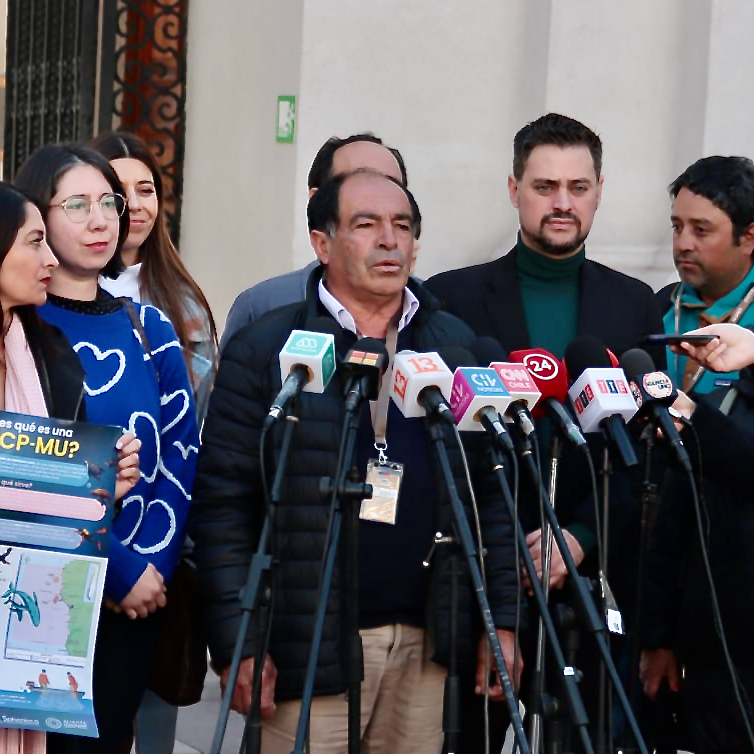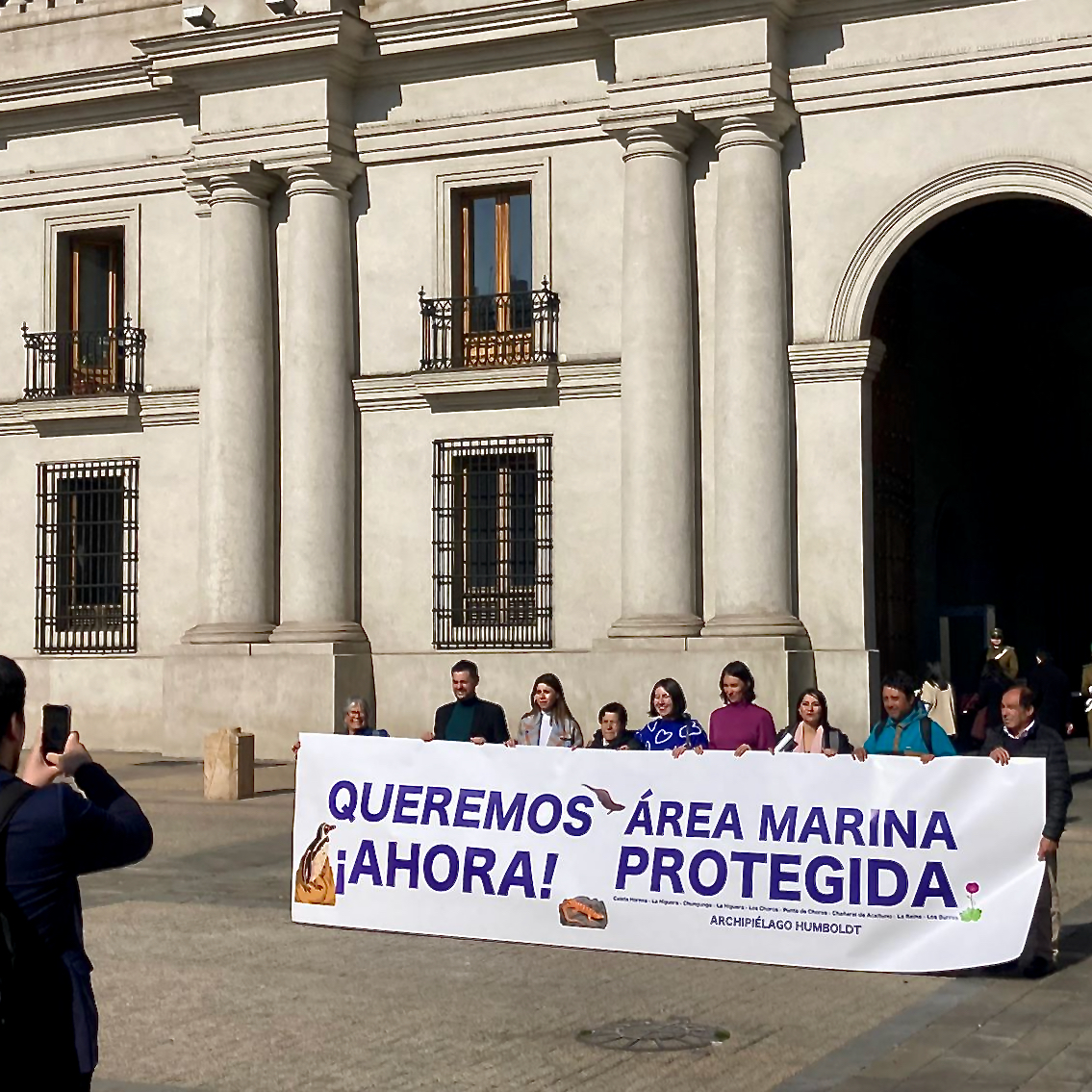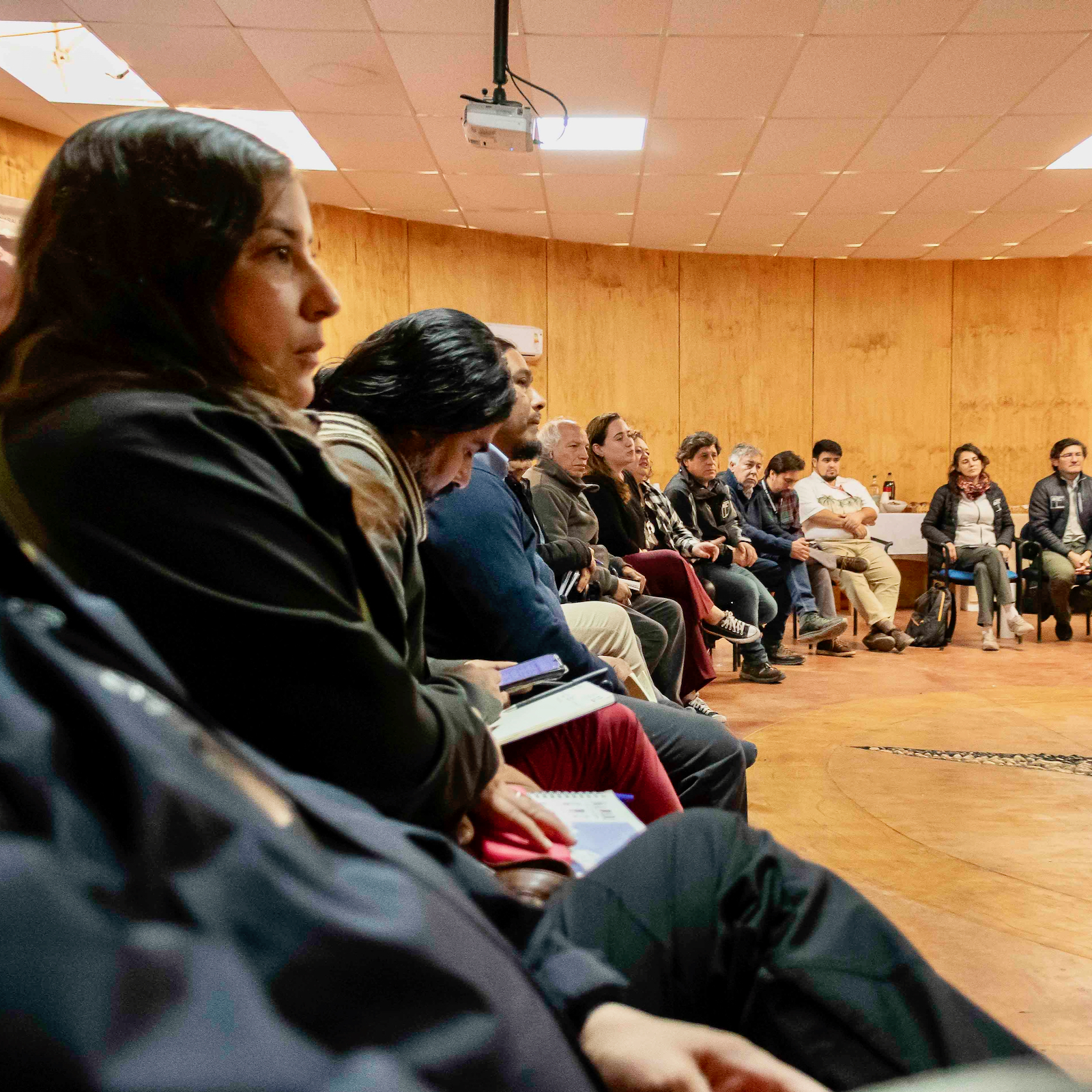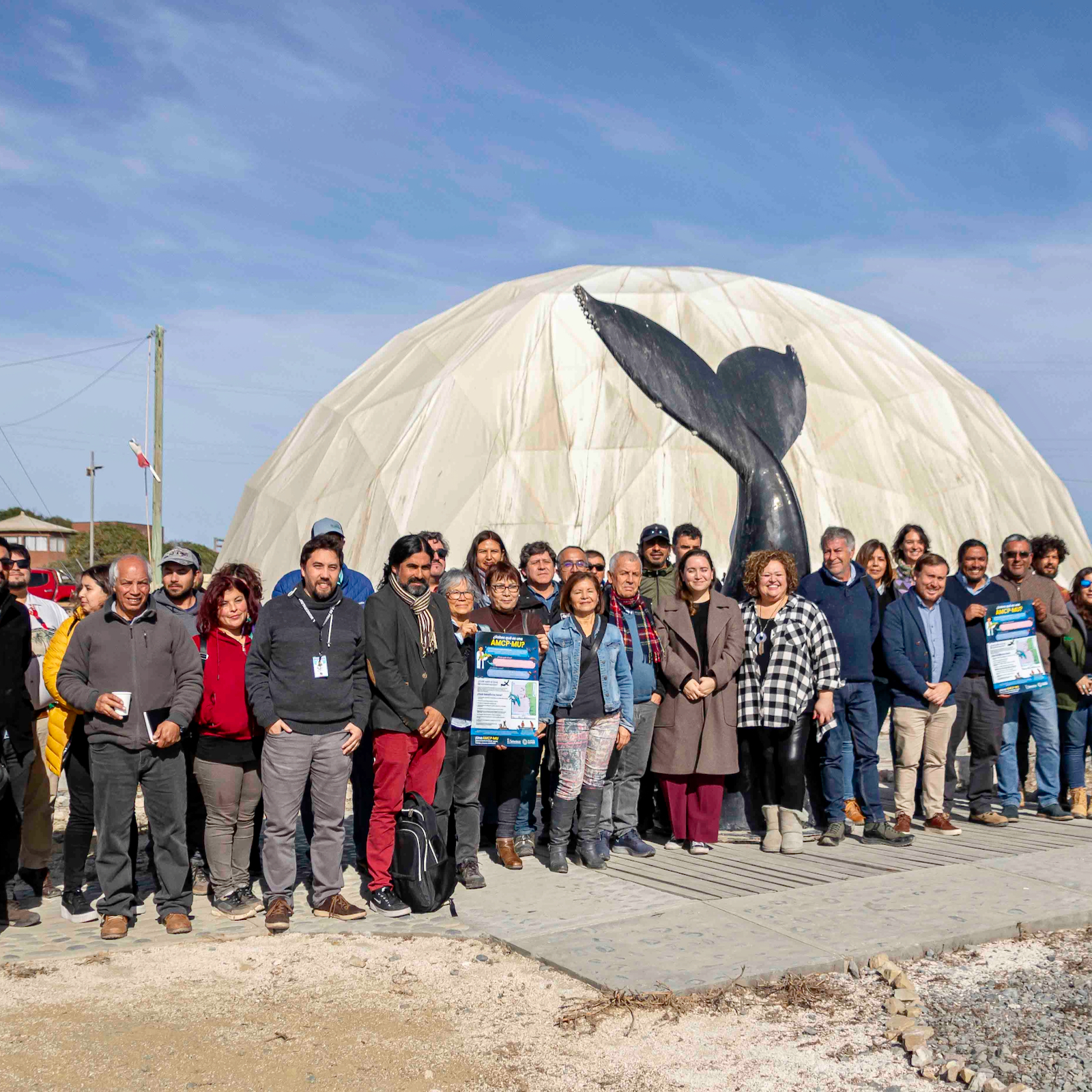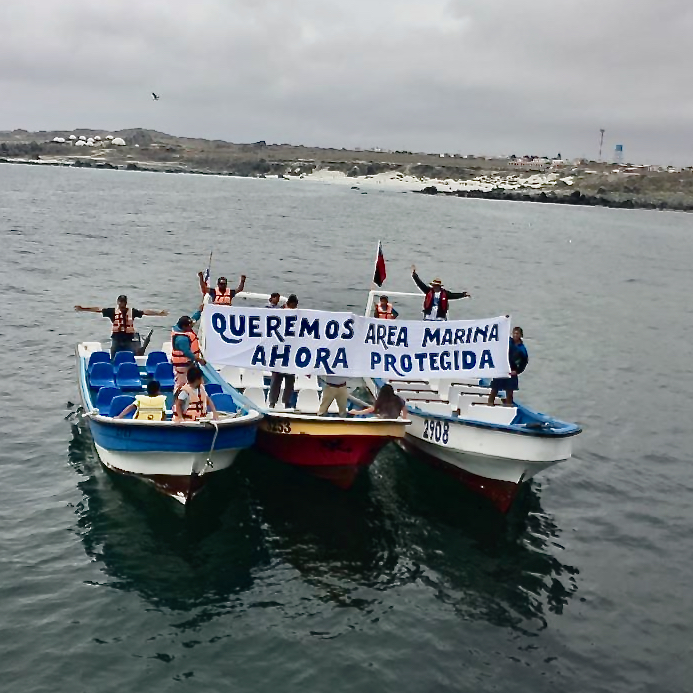La Serena, Landau July 13, 2023. On Thursday, 6 July, in Chañaral de Aceituno, the Ministries of Environment of the Coquimbo and Atacama regions presented a new proposal for a multi-use marine protected area (AMCP-MU) for the Humboldt Archipelago. The meeting was attended by representatives of municipalities, fishermen and environmental and cultural organisations. The category "multi-use marine protected area" refers to a severely limited, i.e. rather low, protection. Its objectives include the conservation of biodiversity, the protection of ecosystems, endangered marine species and their habitats, and the preservation of the historical and cultural heritage of the marine and coastal communities of this area.
The Minister of Environment of the Atacama Region, Natalia Penroz, recalled in the meeting how long citizens have been committed to the protected zone and how important it is for the sustainable development of the region. Several participants strongly opposed this disinformation, saying that there had been no information and no citizen participation. Rather, it is true that there was a month-long, participatory process in which more than 14 workshops took place in both regions and also in all bays of the archipelago.
Nancy Duman, a member of the Alianza Humboldt Coquimbo-Atacama and the NGO Sphenisco, expressed the hope that the Committee of Ministers for Sustainability, of President Boric's government, will meet and approve this protected area once and for all. It is about protecting a marine system that is of enormous importance for the preservation of biodiversity and the livelihoods of its inhabitants; a fact that is known worldwide and is universally recognized.
This hope was bitterly disappointed just one day later, on Friday 7 July. The Council of Ministers for Sustainability met, but did not make the prepared decision. Some ministers justified this by saying that there was not enough background information.
Environmental organizations, fishermen and residents of the Atacama and Coquimbo regions reacted quickly and gathered 3 days later, on Monday 10 July, together with parliamentarians at the Moneda, the official residence of the president in Santiago. There they were received by a minister and the press officer. In a letter to President Gabriel Boric, the delegation called on the executive to approve a multi-use territorial marine protected area in the Humboldt Archipelago: "... We are representatives of various groups of artisanal fishermen, tourism operators, farmers, heads of rural drinking water committees, representatives of the Chango people, environmental and cultural organizations, as well as residents of the municipalities of La Higuera and Freirina. We want to protect the ecosystem in which we live because we know that without an environmentally friendly environment, our sources of work, our livelihoods and the heritage for future generations will disappear.
We can testify to the incomparable richness of this area. To give just a few examples, the areas managed by the various associations of fishermen and mussel collectors for the management of benthic resources are the most productive in the central north of Chile, accounting for 80% of lobster and limpet catching and landings in the entire Coquimbo region. More than 60,000 national and international tourists come every year to observe whales, dolphins and seabirds in one of the few places in Chile where you can see them from the coast. Thanks to the water from the aquifer of the Los Choros River, there are producers of "extra virgin olive oil" and many other sustainable activities.
Fortunately, we are supported by science, which has been providing background information for decades. The data explains why our coast is so special, so unique and irreplaceable. In addition, this special ecosystem has become increasingly important in times when the climate crisis is wreaking havoc on the world.
Mr. President, at the publicly broadcast meeting of the Council of Ministers, the proposal for a multi-use marine protected area of more than 574,000 hectares was presented, which has been discussed for more than a decade by the regional environmental authorities with our municipalities and with which we agree. We do not understand why, in the end, it was not voted on, even though there was an interministerial agreement, an agreement involving all the relevant departments that drew up this proposal.
The process leads us to suspect that the pressure is so great that the urgently needed rescue of an irretrievable ecosystem that is important for life, health and work is to be reversed. ..."
The letter to the president was signed by 42 organizations and individuals, including environmental movements, trade unions, neighborhood councils, indigenous communities, fishing cooperatives, councilors from La Higuera and La Serena.
Many national and regional media reported on the inaugural meeting in Chañaral de Aceituno and the handing over of the letter to President Boric, and especially many informed about the action in Santiago.
The Council of Ministers for Sustainability plans to make the decision on the marine protected zone in an extraordinary meeting later this month. It is to be hoped that the Council will be guided by the same objectivity and professionalism with which it rejected the Dominga project in January and with which the Environmental Assessment Service (SEA) gave detailed reasons for this decision at the beginning of July (see also report of 4 July on this website).
W.K.
translated by Erich Greiner
Sources
Alianza Humboldt, Press Release (Inaugural Assembly Marine Protected Area), 6 July 2023
Alianza Humboldt, Letter to President Gabriel Boric, 10 July 2023
El Mostrador, Santiago, July 10, 2023
El Comunal, La Higuera, July 6 and 10, 2023



